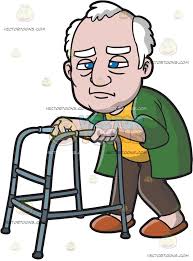
The bracha (blessing) of arichas yamim (long life) is becoming more common in our generation. The average life expectancy has risen with the availability of the many brachos we enjoy, including healthy food and water, access to adequate health care, and a plethora of information about healthy living. How fortunate are those who are zocheh (merit) to live long, productive, and fulfilling lives.
There are many myths associated with “normal aging,” and it is important to know the difference between what is normal as we grow older and indications of possible underlying issues. Knowledge is power when it comes to helping yourself or your loved ones live the most happy and fulfilling life. If experiencing warning signs, seek guidance instead of mistakenly thinking that this is what happens when people get old and there is nothing to do about it.
The Myths
One myth related to aging is that all older adults experience memory loss. In reality, memory loss, depression, and mood swings are not typical signs of aging. However, memory loss that disrupts normal living is a warning sign of possible dementia, according to the Alzheimer’s Association (see www.alz.org). In contrast, typical age-related changes include occasional forgetfulness of names or appointments but remembering them later. Similarly, although misplacing items frequently is another sign to be aware of, in typical aging, people misplace items infrequently and are able to retrace their steps to find what they lost.
Another myth is that all older adults experience a decline in cognition. While changes in a person’s problem-solving skills or difficulty in completing familiar tasks are reason for concern, people should be able to complete cognitive tasks they have always done without any difficulty. Aside from an occasional error balancing a checkbook or other complex tasks, trouble completing any familiar task – whether in a home, work, or leisure setting – may indicate a bigger problem. Additionally, signs like frequent word-retrieval difficulty or using the wrong word or phrase to describe something should also be reported to a doctor.
Typical age-related changes might include difficulty in using electronics that the person did not grow up with, such as a microwave or television feature, or getting temporarily confused about the day of the week but figuring it out later. However, if someone loses track of dates/seasons or has trouble understanding time, that is important to share with a doctor.
Major changes in the five senses are not part of typical aging. Difficulty reading, judging distance, or determining color may indicate an underlying cognitive problem. However, changes in vision related to cataracts would be considered part of normal aging.
Typical aging may include irritability when one’s routine is interrupted. However, when an elderly person experiences a significant change in mood or personality, this should not be ignored. And if someone becomes paranoid, anxious, depressed, or irritable in a way that is vastly different from his or her usual self, the person should see a doctor or psychiatrist. Similarly, if a person withdraws from social activities he or she previously enjoyed, more than just occasionally, this is also something to take note of. Changes in judgment or decision-making are worth sharing with a doctor, as well.
Often, the person himself may not recognize these changes, so it is crucial for family or friends to identify a sensitive way to address these concerns. But if you do have any concerns about your own cognitive functioning, talk to your doctor. There are interventions available for those experiencing symptoms that are not part of the normal aging process.
Prevention
Research shows that you can reduce the risk of cognitive decline with lifestyle changes. One of the many reasons why exercise is beneficial is brain health. (See www.alz.org.) Increasing your heart rate increases the blood flow to your brain. Cognitive stimulation – especially in the form of learning something new or engaging in a cognitively challenging activity, such as a card game using strategy, learning a new language, or completing a cross word puzzle – also reduces the risk of cognitive decline. Smoking, cardiovascular disease and stroke, and brain injury all increase the risk of cognitive decline.
You can therefore reduce your risk by quitting smoking, reducing blood pressure, managing conditions such as diabetes and obesity, wearing a seatbelt, and reducing fall hazards in your home. Improving the quality of your diet and your sleep also reduce your risk of cognitive decline. It is important, as well, to manage any mental health conditions. Research shows that a history of depression may be linked to increased risk of cognitive decline, so it is important to reduce stress and address mental health concerns. Lastly, socialization helps support brain health. It is important to engage in social activities that are important and enjoyable to you. It’s not too late. Starting right now will have a positive impact on your health!
Pnina Rothenberg is an occupational therapist working in the behavioral health unit of Levindale Hebrew Geriatric Hospital and Center.






